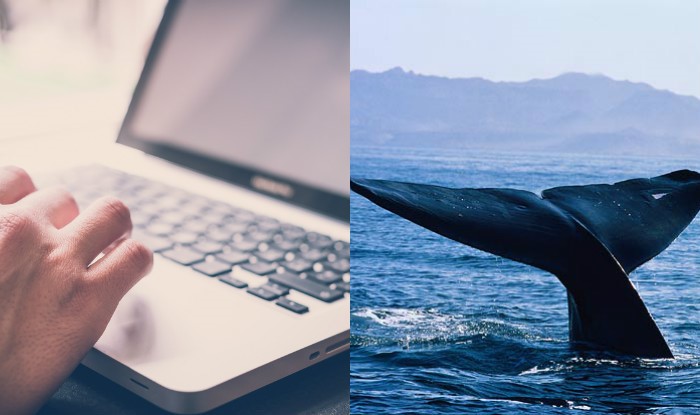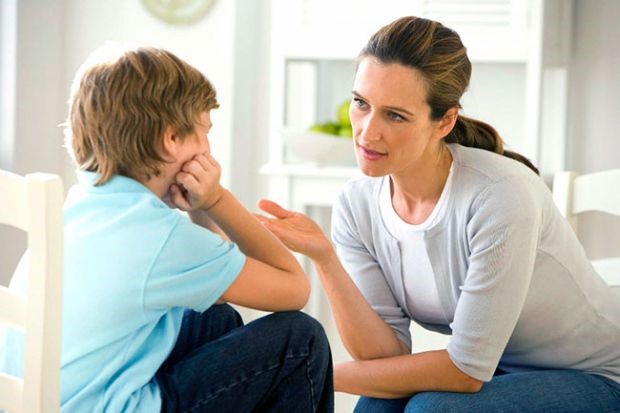‘Be-aware’ of the Blue Whale Challenge
‘Be-aware’ of the Blue Whale Challenge
 The Blue Whale Challenge is an online game which is regarded to be suicidal in nature. It has created a sense of urgency and panic amongst many parents, guardians and teachers, as it has been claiming lives worldwide. There have been cases reported in India as well. However, they haven’t been verified to have been linked with the Blue Whale Challenge.
The Blue Whale Challenge is an online game which is regarded to be suicidal in nature. It has created a sense of urgency and panic amongst many parents, guardians and teachers, as it has been claiming lives worldwide. There have been cases reported in India as well. However, they haven’t been verified to have been linked with the Blue Whale Challenge.
What is the Blue Whale Challenge?
The biggest threat in the online world today, is the Blue Whale Challenge which is allegedly a self-destructive game. In this game, a player is given certain tasks to complete over a period of 50 days. The player is asked to share photos with the curator after completion of each challenge, with the final one being committing suicide. Moreover, a player cannot stop the game mid-way, as he/she is blackmailed and cyber bullied into completing the game.
Besides, this game is not a freely downloadable application or software and is neither available on app stores nor publicly on social media platforms like Facebook. It is shared on secretive social media groups where creators ‘seek out’ their players/victims and send them an invitation to join.
This deadly game is not limited to any one country but has spread worldwide creating a lot of anxiety amongst parents and teachers alike. In India, there have been reports of children harming themselves and even committing suicides, which are reportedly linked to the Blue Whale Challenge. According to UNICEF reports, more than six children across India in the age group of 12-19 years have taken their lives, allegedly playing this game within a span of two weeks.
Who may be the potential victims of the Blue Whale Challenge?
Tweens and teens in the age group of 12-19, who are regarded as the most vulnerable group of social media, are more prone to the Blue Whale Challenge.
How to know if a child is taking the Blue Whale Challenge?
According to renowned child psychologists, a child should be immediately given special attention if and when he/she suddenly tends to stay by himself/herself, stops interacting with family and friends, talks about running away from home or even death, or changes eating and/or sleeping habits. These are regarded as the basic symptoms of a child who may be inclined towards participating in this online game.
 What can Parents/ Guardians do?
What can Parents/ Guardians do? 1.It is extremely important for parents/guardians to become the child’s confidante & instil in him/her the trust so that he/ she can share anything and everything with them.
2.It is important for parents/guardians to gather authentic information about the game. The recent cases of suicide have been allegedly linked to the Blue Whale Challenge based on the media reports. However, they haven’t been verified yet.
3.The media speculation is probably the reason why children know about the Blue Whale Challenge. Thus, there is a need to take certain measures to inform children and interact with them to avoid any mishaps.
4.It is important for parents/guardians to make sure that their child is exposed to content that is appropriate to their age and not something which promotes unethical behaviour or damage.
5.It is essential that parents/guardians ensure that the child accesses internet from a device that is under constant monitoring by a family member. If he/she accesses it from a computer, it must be placed in a family space. All devices used by a child should have parental control in addition to monitoring screen time.
6.It is important for parents/guardians to spend quality time with their children and explore the online world together in addition to engaging in interesting activities that demonstrate ethical and safe online behaviour.
7.It is important to observe the child’s behaviour closely and to analyse any unusual changes such as moodiness, less or no communication, lack of interest in studies and falling grades.
8.The parents/guardians can also talk to their fellow parents/ friends and discuss best ways to help the children.
9.If a parent/guardian finds out that the child is already playing the Blue Whale Challenge, it is advisable to immediately stop him/her from using the internet from any devices. The parent/guardian can also inform the local police authority about what has happened and seek their advice on the next safety measures.
How can teachers help?
1.The teacher needs to keep an eye on students who get grades lower than expected or behave unusually. They need to monitor individual behaviour of each student.
2.They need to personally interact with students who are less interactive and are mostly reserved and aloof.
3.They should ensure that the pros and cons of the internet are discussed with the students from time to time.
4.The teacher should immediately inform the school authorities and the concerned parent/guardian if they find anything unusual in a student or observe something that is suspicious or alarming.
It is important for both teachers and parents to be well-informed about such a situation and take necessary action when required.





















